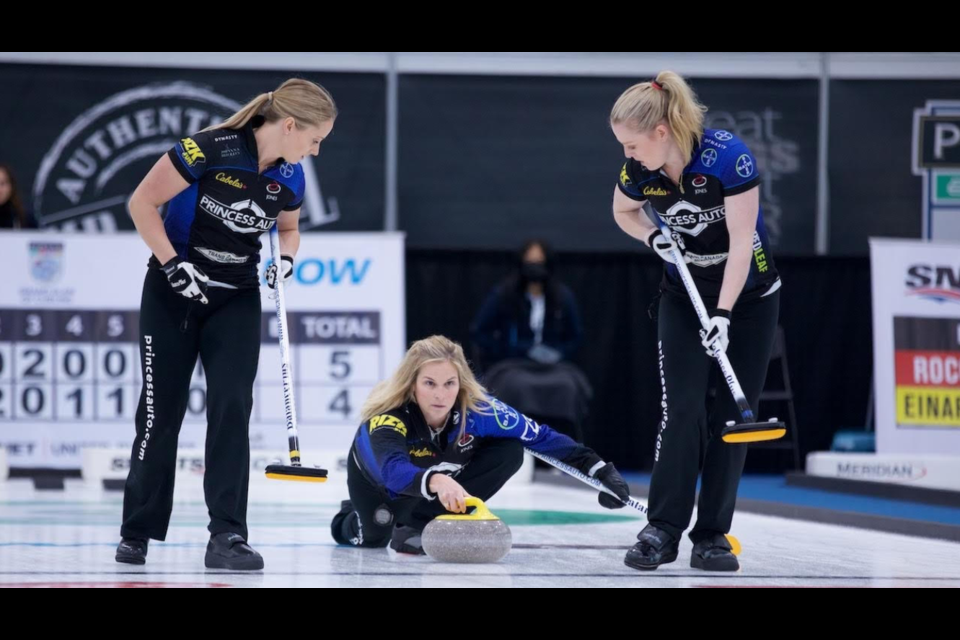Your eyes weren’t deceiving you if you thought you saw Jennifer Jones cruising around the local area, be it at local golf courses, curling rinks, or partaking in the minutiae of daily life.
Jones is generally accepted as the greatest female curler of all time, one of the country’s most notable female athletes and an icon in her sport in both her home province of Manitoba and Canada.
Jones has lived in the Barrie area with her family for several years. In fact, she sounds an awful lot like so many transplanted locals who now make the area home.
“I’m a very proud Manitoban,” Jones tells BarrieToday, “and it took me a while (to decide to move here), but I have to say that we live in pretty much the best area to live.
“You have the lakes (of cottage country) nearby, Toronto is just an hour so down the highway. … It’s a great place to be and to live.”
Jones, 47, and her husband, fellow curler Brent Laing, have two daughters. Their life is a dizzying whirl raising two kids, keeping sharp on the ice, and keeping up with professional obligations. A trained lawyer, Jones works as a legal advisor and Laing has a senior role with World Financial Group.
Life is busy, especially in a pandemic that has added extra layers of preparation and caution. Jones has been able to stay in game shape using the Alliston Curling Club as her base.
“They have been great to us and (managed) to keep great ice in since COVID,” said Jones, who occasionally uses the Barrie Curling Club to train/practise in so-called normal times.
Jones recently qualified to represent Canada again at the upcoming Beijing Olympics with a dramatic win over Tracy Fleury’s rink in extra ends. After an uncharacteristic miss in the 10th end that would have won in regulation, it swung the other way for Jones’s team when Fleury wrecked on a guard with her final stone to hand Jones her second Olympic berth.
“I haven’t really stopped thinking about it yet,” she said during a recent phone conversation. “We knew to begin the week it was a great opportunity… you’re never out of it.”
Jones will return to the Olympics eight years after winning gold in Sochi. That victory capped an undefeated week, the first women’s team to do that since the sport was included in the Olympic program in 1998.
Her list of accomplishments reads like a greatest hits list across almost two decades. She has won the Scotties Tournament of Hearts – the national women’s championship – six times and twice been world champion. Major tournaments in curling are referred to as Grand Slams and Jones has won 15, tops among women by a wide margin. Her next Scotties title will push her past Colleen Jones on the all-time list.
Jones has had the bird's eye seat to watch the maturation of the women’s game. In fact, her rink's presence in it is one of the biggest reasons for its rise, which keeps moving higher.
“The evolution of women’s curling has been crazy. You must be more precise than ever to be successful and to win," she says. “I remember in Sochi, which was (considered) the best women’s field every assembled and it has only gotten better.”
Curling occupies a unique grey area in many people’s minds. Most Canadians are aware – how could you not be? – of the sport and its basic rules and scoring, but still couldn’t identify a slider from a soup spoon.
It was pointed it out to Jones that bridging the gap between watching curling and playing it, could be described as a combination of being good at golf and in chess. She agreed to a point.
“You always have to be thinking a couple steps ahead, like in chess,” Jones explained, “and… it’s a lot like putting on the green in golf. But you also have the team aspect in curling" that golf and chess don’t have.
For now, Jones and her team (who remain in Manitoba), have a couple of tune-up events ahead of Beijing. But Jones is also taking a wait-and-see approach given the extra degree of caution required by the pandemic generally, and the specific protocols that must be followed ahead of a trans-continental journey to China.
“We are being super careful.”



